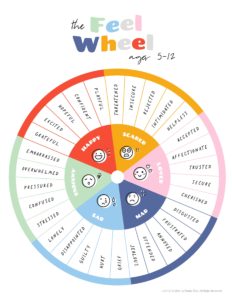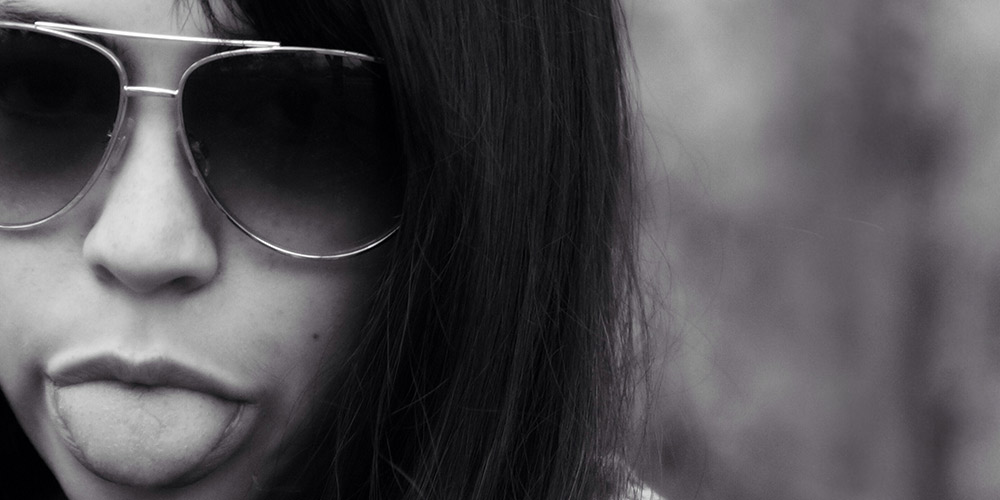“Mom, she’s doing it again,” my daughter whispered in my ear. The little girl we were watching for the weekend was sitting on the stairs with her arms crossed, bottom lip out, trying to burn a hole in the floor with her laser-beam glare. She wanted ice cream before lunch, and I said no. Pouting seemed to be her M.O., and it was getting old. Fast.
Pouting can be one of the most frustrating and challenging behaviors in kids. But there are ways to react that can put a stop to it more quickly or end it altogether. Try one of these 5 ways to understand and deal with the pouting child in a healthy, productive way.
1. Figure out what your pouting child is trying to achieve.
Like me, you might have assumed all pouting is the same. But after some research and close observation, I’ve learned pouting kids can have different goals, and it’s important to determine which one applies to your child before you take action.
If your kid is pouting, it’s probably because she wants to induce pity and get you to change your decision. She also might be expressing feelings she doesn’t know how to verbally express or get your attention to feel seen and heard.
2. Let the pouting behavior die out.
A very natural response to pouting is to give the child whatever he wants so the pouting will stop. This appears to work in the short-term, but what about the long-term? Remember the carnivorous plant from Little Shop of Horrors? As it was fed, it grew into a monster. Your child’s pouting is like the plant. When you feed the plant by giving in to its demands, it grows. The next time your child doesn’t like a situation, he’s going to pout again. In the words of James Lehman, a child behavioral therapist and author of EmpoweringParents.com, “Simply put: it works for them.”
Little Shop of Horrors has an entire song called “Don’t Feed the Plant!” And that’s exactly what you need to do by holding steady to your decision. When your child sees this type of pouting will not work anymore, the pouting will die out (just like a plant you haven’t fed).
3. Give them words to express strong feelings.
Disappointment, frustration, anger, and sadness can be big emotions for kids to deal with. Dr. Lehman says that pouting is “a natural immature expression of various emotions… [because] the child has not yet learned the skills to express his frustrations in an appropriate way.” This pouter doesn’t know how to describe his feelings—he doesn’t have the words.
In this case, use the Feel Wheel. With this tool, you can help kids process and identify what they’re attempting to express through pouting. This is a huge step in helping them mature to “big kid” communication. Once the feeling is identified, you can more easily work through those feelings with your child.
4. Let them know they are seen and heard.
I have a teenager who tends to give me the silent treatment or huffy attitude when she’s unhappy with my decision (both are different expressions of pouting). Although she’s as prickly as a porcupine, what she wants is to draw me in.
If you have a prickly kid too, you can meet your child’s needs by acknowledging that you see him and care. Try something like, “Hey, I see you’re unhappy with this. If you want to talk, I’m willing to listen.” If he takes you up on the offer of talking, practice some reflective listening or try verbalizing his wishes.
Knee-jerk reactions are rarely effective. Click To Tweet5. Avoid the knee-jerk responses that make pouting worse.
Aside from feeding the plant, there are other not-so-great responses that we tend to have. Sometimes we react in anger, demanding the pouting stops now! And what about making fun of the child for pouting? Yep, that happens too. A friend of mine said that her mom even gave her a nickname when she pouted. That doesn’t address the issue. It just creates a frustrated, hurt child.
If we expect better communication from our children, we should expect it from ourselves, too. Knee-jerk reactions are rarely effective. Being more thoughtful with our responses to pouting can curb that behavior and model healthy expression.
How do you deal with pouting?











